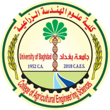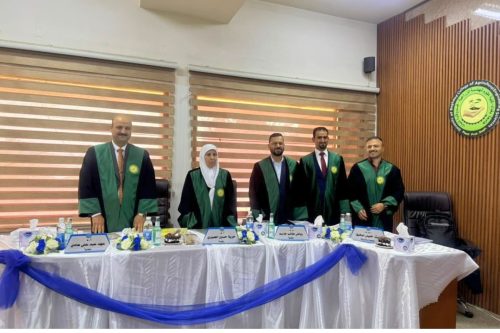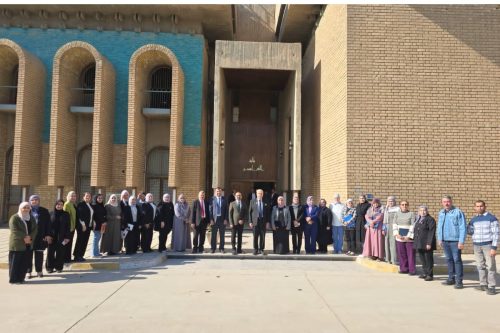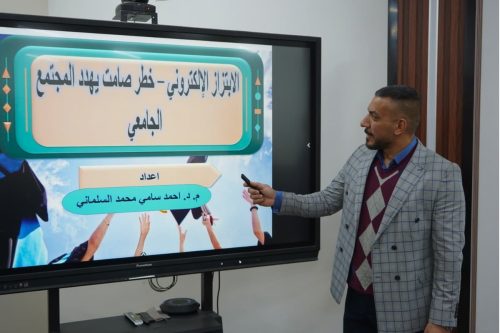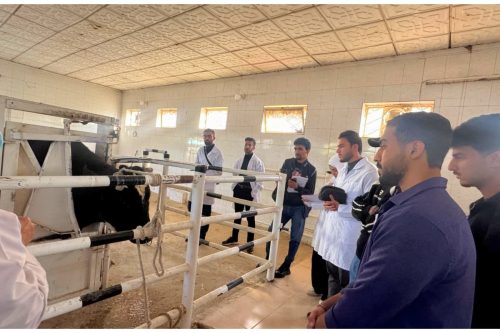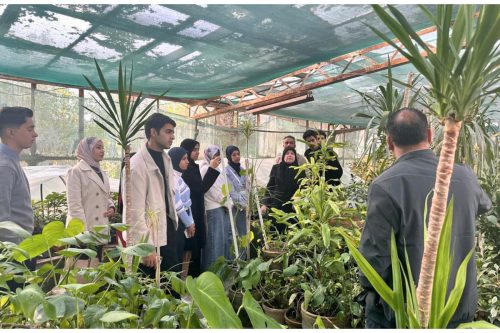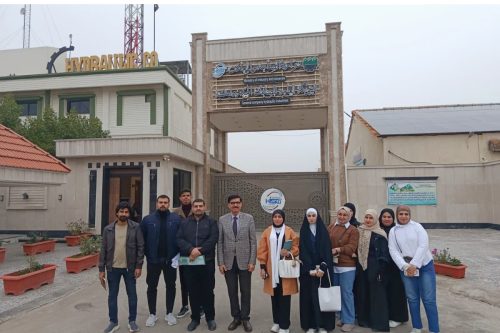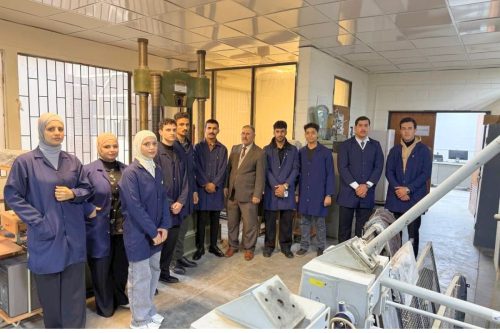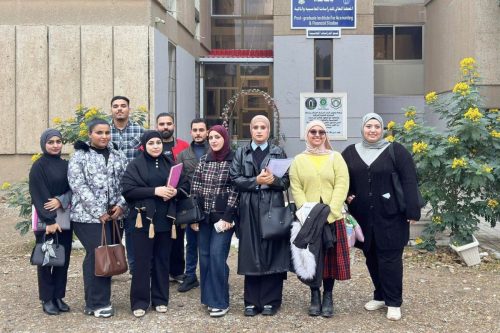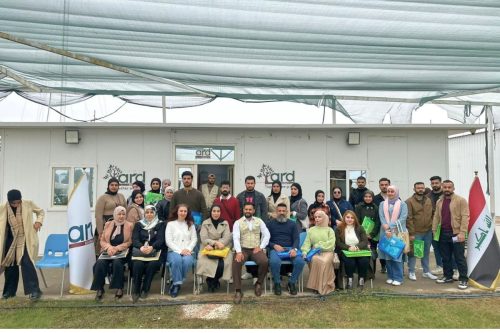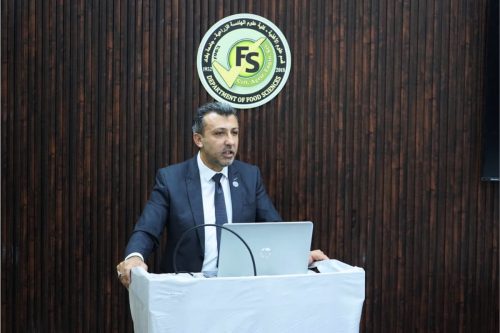In line with the objectives of sustainable development, a committee composed of faculty members from the Department of Horticulture and Landscape Engineering conducted a field visit to review the experiment, “The Effect of the Biofertilizer Chlorella Vulgaris and Foliar Application of Melatonin and Boron on the Growth and Yield of the Sayir Date Palm Cultivar.”
The experiment, carried out at the Fadak Palm Farm affiliated with the Holy Hussaini Shrine in the sacred province of Karbala, is part of the research of PhD student Mustafa Essam Mohammed Jawad, under the supervision of Assistant Professor Dr. Salah Hassan Jabbar.
The committee members listened to a detailed explanation from the student regarding the nature and objectives of the research project. The research aims to increase yield quantity, improve fruit quality and characteristics, and study the reduction of environmental stress impacts through the application of melatonin and boron.
The committee provided their observations and guidance to the student, wishing him success and further achievements in his work.
____________________________________–
